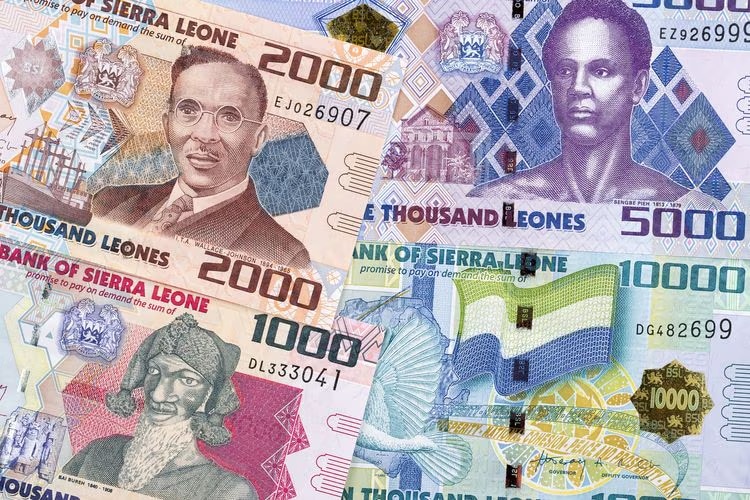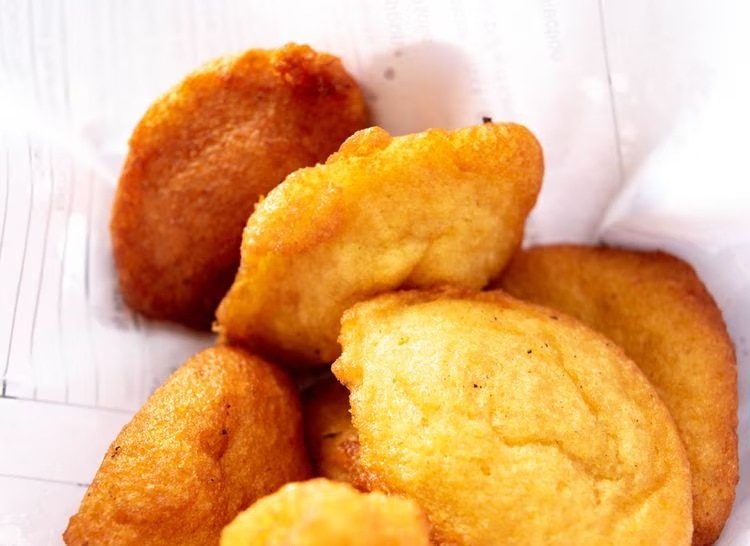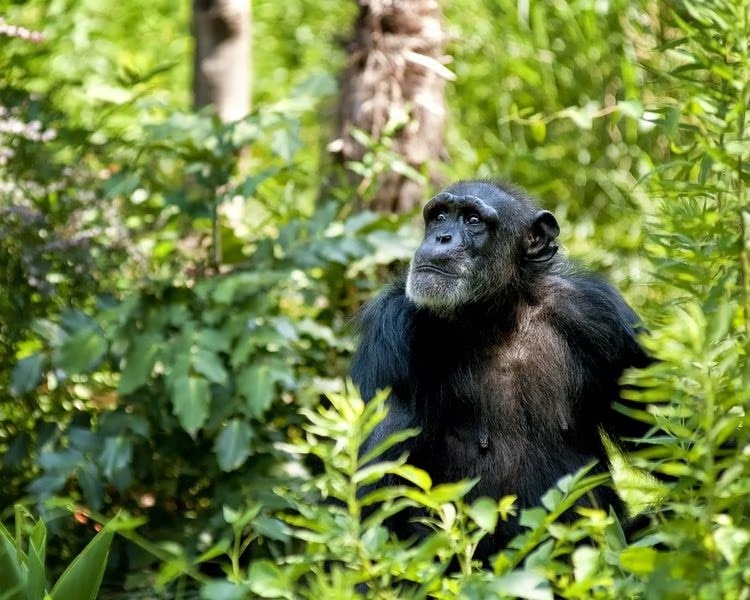Sierra Leone Travel Tips and Information
Official Name
Republic of Sierra Leone
Capital
Freetown
Population
Country Code
6.453 million
SL
Country Code (international calls)
+232
The flight time to Sierra Leone is approximately 16 hours. Check the climate, currency, religion, manners, other information of Sierra Leone below. Wishing you pleasant travels to Sierra Leone.
Sierra Leone is a country in West Africa. The Republic of Guinea is to the north and northeast, Liberia is to the east and southeast, and the Atlantic Ocean on the west and south.
Local Climate / Weather
Sierra Leone experiences a tropical climate with two distinct seasons: the rainy season, from May to November, and the dry season, from December to April. During the rainy season, the country receives heavy, consistent rainfall, particularly in July and August, which may cause travel disruptions and limit access to certain attractions due to flooding or muddy roads. The dry season, characterized by sunny days and the harmattan winds from the Sahara, is the ideal time for travel. Temperatures remain warm year-round, averaging between 25°C and 31°C (77°F to 88°F), with coastal areas being slightly cooler due to sea breezes. Travelers should plan their visit during the dry season to fully enjoy Sierra Leone's stunning beaches, wildlife reserves, and cultural sites without weather-related interruptions. Sierra Leone’s rich cultural heritage comes alive through its vibrant festivals and events, offering a unique insight into the local way of life. In December, the Freetown Marathon attracts runners and visitors from around the world, marking the festive spirit of the dry season. Another highlight is the Tangains Festival, celebrated annually in December, showcasing Sierra Leone’s music, dance, and traditional arts. Religious festivals such as Eid al-Fitr and Christmas are widely celebrated, with communities coming together for feasts and festivities. Independence Day on April 27th is a national event marked by parades, cultural performances, and patriotic celebrations across the country. Travelers visiting during these times can immerse themselves in the country’s lively traditions and connect with the welcoming local communities.
Currency & Tipping
Currency
Sierra Leone uses the Sierra Leonean Leone (SLE) as its official currency. Banknotes are the most commonly used form of money and are available in denominations such as 1, 2, 5, 10, 20, 50, and 100 Leones. Coins are less frequently used but are available in smaller denominations for minor transactions. All travelers should familiarize themselves with the look and feel of the banknotes to avoid confusion or potential counterfeit issues.
Tipping
Tipping is not mandatory in Sierra Leone but is appreciated as a gesture of gratitude for good service. In restaurants, leaving a tip of 5–10% of the bill is considered generous. For hotel staff, small tips for services like luggage assistance or housekeeping are customary, and for taxi drivers, rounding up the fare is a common practice. All travelers accustomed to tipping can use it as a way to build rapport and show appreciation to locals offering excellent service.
Useful Travel Information

Voltage & Electrical Outlets
The standard voltage is 230V, and the frequency is 50Hz. The country primarily uses Type G outlets, which are the same as those in the United Kingdom. All travelers should bring a universal travel adapter to ensure compatibility with their devices. If your gadgets are not designed for 230V, a voltage converter might also be necessary to avoid potential damage.

Internet Connectivity
Internet access in Sierra Leone is improving, but it remains limited in rural areas. In major cities like Freetown, travelers can find Wi-Fi in hotels, cafes, and business centers, although the speed may vary. Mobile data is a popular option, with several providers offering prepaid SIM cards and affordable data packages. All travelers who rely on a steady internet connection should consider purchasing a local SIM card for convenience.
Water for Consumption (Drinking Water)
Tap water in Sierra Leone is not safe for drinking. Travelers should only consume bottled or filtered water to avoid waterborne illnesses. Bottled water is widely available in urban areas, but it’s advisable to carry your own supply when traveling to remote locations. Avoid using tap water for brushing teeth and ensure that any ice in drinks is made from purified water.
Culture, Religion & Social Etiquette
Culture
Sierra Leone boasts a vibrant cultural heritage deeply rooted in its diverse ethnic groups, including the Mende, Temne, and Creole communities. Music, dance, and storytelling play an integral role in daily life, with traditional drumming and songs often accompanying ceremonies and festivals. All travelers will appreciate the warm hospitality of Sierra Leoneans, who are known for their strong sense of community and friendliness toward visitors. Engaging with locals can provide a rich cultural experience and insights into their traditions.
Religion
Sierra Leone is a religiously harmonious country where Islam and Christianity are the predominant faiths. Approximately 70% of the population practices Islam, while around 25% are Christians, with the remaining 5% adhering to indigenous beliefs. Respect for religious practices, such as modest clothing and awareness of prayer times, will enhance interactions with locals.
Social Etiquette
Good manners and politeness are highly valued in Sierra Leone, with greetings being an important social custom. When meeting someone, a warm handshake accompanied by friendly inquiries about health or family is customary. All will find this similar to their own culture, where hospitality and respect are emphasized. It’s also important to respect personal space and avoid pointing with your fingers, as these gestures may be considered rude. Always ask for permission before taking photos of people or private property to ensure a respectful travel experience.
Food Culture
Sierra Leone's food culture is a delightful blend of rich flavors and hearty meals that reflect its diverse heritage and reliance on fresh, local ingredients. Rice is a staple and often served with spicy stews made from cassava leaves, groundnuts, or fish, showcasing the bold and earthy flavors of West African cuisine. Street food is an integral part of the dining scene, with popular options like fufu (fermented cassava dough) and grilled fish readily available at bustling markets and roadside stalls. For an authentic culinary experience, travelers can explore local favorites at restaurants like Balmaya in Freetown, known for its traditional dishes, or The Crown Xpress for a fusion of Sierra Leonean and international flavors. All visitors will enjoy the vibrant and communal dining culture, reminiscent of home.
Major Tourist Attractions & UNESCO World Heritage Sites
Major Tourist Attractions
Sierra Leone offers a mix of natural beauty and cultural experiences that captivate travelers seeking off-the-beaten-path adventures. One must-visit destination is River Number Two Beach, known for its pristine white sands and crystal-clear waters, perfect for swimming and relaxation. Nature enthusiasts can explore Tiwai Island Wildlife Sanctuary, home to rare primates and vibrant bird species, offering guided tours and river safaris. The bustling city of Freetown provides a glimpse into the country's history, with attractions like the Cotton Tree—a centuries-old symbol of freedom—and the lively Big Market, where visitors can shop for traditional crafts. For all travelers who enjoy connecting with nature and exploring unique cultures, these destinations promise unforgettable experiences.
UNESCO World Heritage Sites
The Bunce Island slave fort, a UNESCO Tentative World Heritage Site, is a poignant historical landmark located near Freetown. This small island played a significant role in the transatlantic slave trade and offers guided tours that delve into its somber past. Another notable site is the Gola Rainforest National Park, considered for UNESCO recognition due to its ecological significance. This vast rainforest is a haven for biodiversity, making it ideal for eco-tourism activities like guided hikes and birdwatching. All travelers with an interest in history or nature will find these heritage-rich sites both educational and inspiring, offering deeper insights into Sierra Leone’s past and environmental treasures.
Voice of Travelers to Sierra Leone
The crew were outstanding
My ticket led to a very pleasant experience with Air Austral. The food was above average for an economy-class ticket. The movie choice was a bit limited but there were enough English films to keep us entertained. Drink as much as you want while flying to Sierra Leone. The onboard crew was outstanding - friendly and professional. I realised that the airports in France compared to Sierra Leone are too different for me, but at the end I will say I enjoyed my Sierra Leone trip with my ticket. Traveling to Sierra Leone with my air ticket couldn’t have been better!
Disappointed with my flight
I took a flight from Paris to La Sierra Leone. I was very disappointed with my flight on Air Austral. My expensive air ticket got me a bad experience - very damaged seats, small, uncomfortable, dirty. Due to health problems, I have to eat neither fat nor sugar on any reunion plane so I always order a light meal. Air Austral’s special meal also had a special price. The meal cost an astronomical sum of 20 €. After all that, I ultimately ended up with a meal full of fat! What a waste of a ticket. Between the outward and return flight to Sierra Leone, I had exchanged emails with the company, but the Sierra Leone Airline union wanted nothing to do with this matter. Sierra Leone is under the jurisdiction of France, but an air ticket is just too expensive and the flight is not worth the ticket price. Normally, an air ticket is the key to a smooth journey to Sierra Leone, but the ticket didn’t help in this case.
Worst experience Sierra Leone Airlines I had
I took a flight from Sierra Leone to Johannesburg with Air Austral. It was one of the worst experience I have ever had with an air ticket, even though the ticket was not cheap. After we took off from Sierra Leone, the flight had to go back to Sierra Leone because of a technical difficulty. Nobody at the airline in Sierra Leone spoke English. Upon arrival at Johannesburg from Sierra Leone, we tried to negotiate with the manager and asked her to find us a ticket to another flight. She said that there was nothing she could do for us. I ask everybody not to fly to Sierra Leone, even with a cheap ticket.
Travel FAQs
What is the safety situation in Sierra Leone like? What should I be careful of?
Sierra Leone is generally safe for travelers, but all travelers should exercise caution due to occasional petty crimes like pickpocketing and scams, especially in crowded areas. It's advisable to avoid walking alone at night, keep valuables secure, and stay informed about local conditions. Additionally, be aware of health risks such as malaria and ensure vaccinations are up to date before traveling.
Is English spoken in Sierra Leone?
English is widely spoken in Sierra Leone. You won't have any trouble in tourist areas or hotels.
What is the most popular airport to fly to Sierra Leone?
Lungi International Airport, located near the capital, is popular.




